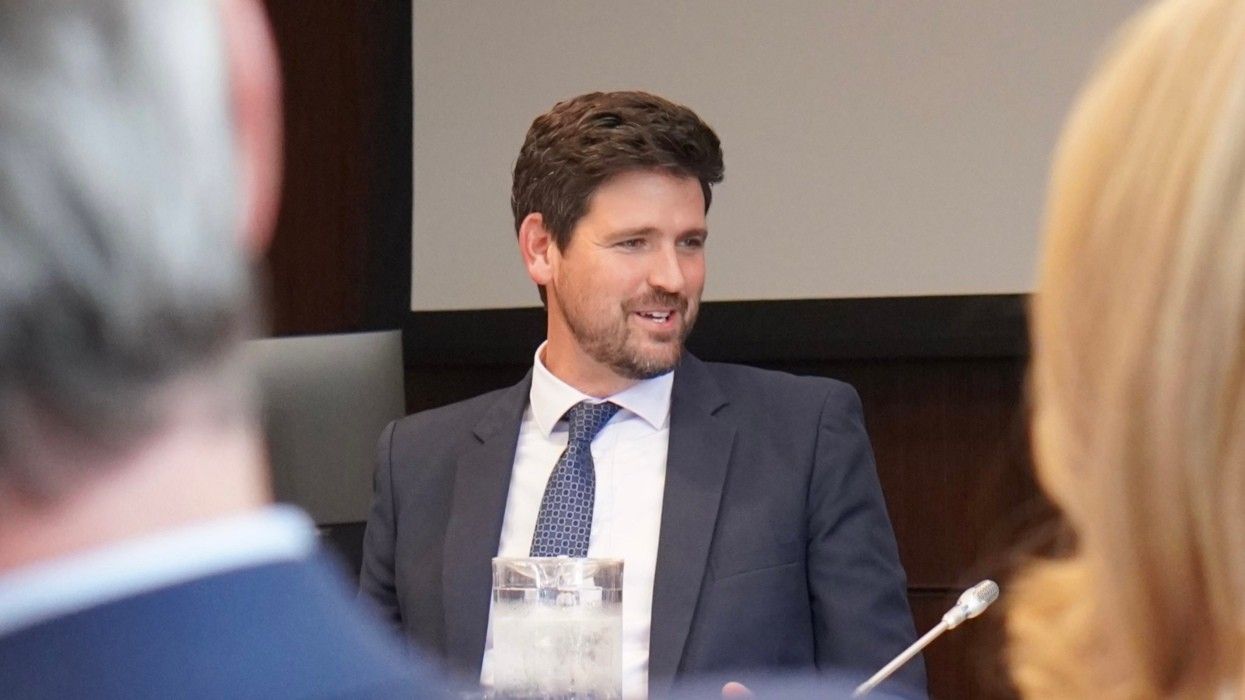On Wednesday, Prime Minister Justin Trudeau and Minister of Housing, Infrastructure, and Communities Sean Fraser made yet another announcement teasing several items to be delivered in the forthcoming federal budget.
The key item from Wednesday's announcement is that the Government of Canada will be launching a program called Canada Builds, which will see the federal government partner with provinces and territories to build more rental housing across Canada.
Canada Builds was inspired by the British Columbian government's BC Builds program, which was first introduced this February, and the federal government is not only not hiding that fact, they're directly citing BC Builds as a model other provinces and territories should follow.
"The federal government is leveraging its $55B Apartment Construction Loan Program by making it available to support partnerships with provinces and territories that launch their own ambitious housing plans, similar to the recently announced BC Builds initiative," the federal government said in a press release on Wednesday. "In order to access federal financing, provinces and territories will be expected to meet the benchmarks set by BC Builds and deliver action to build even more homes."
The BC Builds program has three major components. In the first, the Province creates a "land bank" that consists of underutilized land that's currently owned by government entities, not-for-profits, faith-based groups, and one day even private owners. The program will then make that land available for development, before finally providing low-cost construction financing in order to allow those projects to move to the construction stage quicker. Shortly after the Province unveiled the program, the Government of Canada announced that it was matching the Province and providing $2B in low-cost loans as well.
"My sense is everybody knows that they best money on the market is based on the federal borrowing rate, and if we can pass that borrowing rate through to provincial initiatives, that allows builders to build more quickly, and have the math work, so projects can still ensure a certain number of units are offered at prices that middle class households can afford," Fraser said in an interview with STOREYS on Wednesday. "Then I think we have a recipe for success."
Fraser says one of the great things he loves about the BC Builds program is that it "dovetails perfectly" with the aforementioned Apartment Construction Loan Program. On Wednesday, as part of the same announcement for Canada Builds, Trudeau and Fraser said the federal government will be topping up the program with another $15B and also making some changes that will make the program even more accessible.
"We discussed, early on, the opportunity to partner with BC to advance the work of BC Builds by putting federal money on the table that would do two things: build more homes and achieve a greater degree of affordability than could otherwise be possible," added Fraser. "We used the partnership with British Columbia as the inspiration for the Canada Builds program."
One other program the BC government has created that has drawn widespread interest is the Rental Protection Fund, which is distributing grants to non-profit organizations to help them acquire existing affordable housing buildings, shielding them from redevelopment. Industry advocates, including the Canadian Housing and Renewal Association, have pushed for a national version of this program as well.
"We are looking at different options in terms of how we can support the transition of market-based housing that's currently offered at low prices to affordable housing that's owned by non-profit organizations," Fraser said.
He adds that he is supportive of the idea or preserving existing affordable rental stock, which was a key component of the Housing Accelerator Fund agreement with the City of Toronto. Toronto has a similar acquisition program called the Multi-Unit Acquisition Program that will now be expanded as part of their HAF agreement.
"We, over the course of the last number of decades, have lost hundreds of thousands of affordable housing units in this country, as older buildings become renovated, or the price go up when a new owner takes over a building, and if we [provide] an opportunity for non-profits to maintain quality accommodations at prices for low-income families, then we can solve a very, very big social problem," says Fraser.
Asked what he thinks about what he's seeing in British Columbia on the housing affordability front, Fraser was highly-complimentary of both Premier David Eby and Minister of Housing Ravi Kahlon."
"BC is leading the country when it comes to housing policy and it's really encouraging to see the level of ambition they're demonstrating — not just to play at the margins, but to solve the housing crisis," says Fraser. "We have the same level of ambition, nationally, within the federal government, and it would be most welcome if other provinces would look to the leadership of Ravi Kahlon and David Eby. What they're considering. What they're next steps could be. They are writing the playbook and publishing it in real time. If the entire country were as aggressive and ambitious on housing as the provincial government of British Columbia, we would be able to restore a level of affordability when it comes to housing in this country that hasn't existed for decades."
- Every Canadian City That Has Received Housing Accelerator Funds (MAP) ›
- Every Housing Project That's Being Constructed Through BC Builds (MAP) ›
- Every Acquisition BC's Rental Protection Fund Is Facilitating (MAP) ›
- 10 New Housing Actions Announced In Budget 2024 You May Have Missed ›
- The Canada Rental Protection Fund Is Launching With Just... $5M? ›
- Feds Push For Transit-Oriented Development With $30B Canada Public Transit Fund ›
- Feds Unveil 'Canada Public Land Bank' With 56 Properties Set For Housing Development ›





















